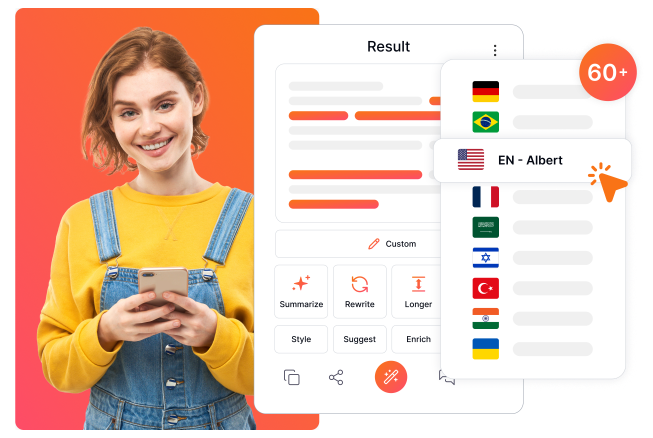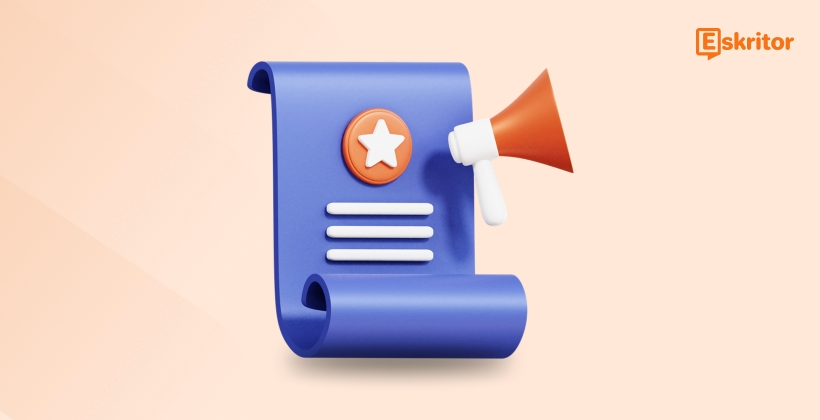Why AI Editing is Revolutionizing Proofreading
Why AI Editing is Revolutionizing Proofreading
Blog Article
The Role of AI in Modern Editing Practices
Artificial intelligence (AI) publishing engineering has evolved fast within the last decade, reshaping the way we build and communicate with published content. From syntax correction resources to AI-generated books, the number of choices seem limitless. But where just is this technology going? Let's investigate the improvements, difficulties, and potential potential of ai grammar checker.

How AI Publishing Technology Works Today
At its key, AI writing engineering relies on Natural Language Processing (NLP) and machine learning. These systems enable models to understand, make, and improve human language. Instruments available nowadays excel at projects like:
1. Content Creation
AI has achieved a spot where it could produce complete blog posts, social media marketing sayings, and actually media articles. Some designs can handle mimicking human publishing variations so efficiently that distinguishing between AI- and human-written material has become significantly difficult.
2. Grammar and Type Suggestion
AI-powered publishing assistants don't just check always for grammar and punctuation errors; additionally they offer ideas to boost tone, clarity, and sentence structure, creating complex writing accessible to a wide audience.
3. Emotion Analysis
AI can evaluate the mental tone of an item, permitting organizations to examine how their communications may resonate with readers. This is specially useful in marketing and client interaction.
The Recent Traits in AI Publishing Engineering
A few developments are surrounding the next phase of AI-powered writing resources:
• Personalization
AI writing technology is significantly capable of tailoring content to personal preferences. Designs may adjust to a user's publishing fashion, ensuring the output feels authentic.
• Multilingual Abilities
Many AI tools are expanding their world wide achieve by giving enhanced translation characteristics and help for numerous languages.
• Increased Research Features
AI resources today possess the ability to analyze huge amounts of data and offer fact-checked, well-researched writing in seconds, simplifying the process for experts in industries like law, financing, and journalism.
What the Future Supports for AI Publishing Technology
1. Improved Imagination
While recent AI is adept at generating material, their creativity is still limited to habits within its instruction data. Future AI is not only expected to assist but to produce unique, useful operates that problem human imagination.
2. Smooth Venture
Envision an AI that works along side you in real-time, performing your sentences, conducting live edits, and also brainstorming ideas. AI writing resources may shortly become co-authors, enabling creativity to flow uninterrupted.
3. Moral and Accessible Style
With growing problem about plagiarism, misinformation, and bias, designers work toward more transparent AI education processes and ethical implementation. Potential tools will more than likely offer more extensive details and actions to make sure accountability.
Challenges and Considerations
The evolution of AI publishing engineering is not without hurdles, including:
• Ethical Issues

Who owns material developed by AI? Just how can we ensure AI-generated material isn't distributing misinformation? These debates remain unresolved.
• Human-AI Balance
Can AI complement human creativity or totally change particular functions? Several authors and musicians bother about their relevance within an AI-driven world.
• Convenience Separate
Not all agencies or regions have identical usage of cutting-edge AI instruments, raising questions about the impact of the technology on world wide inequality.
Adjusting the Way We Create
AI writing technology continues to be in its infancy in comparison to their potential. Whether you are students creating documents, a content marketer targeting particular audiences, or a author seeking motivation, AI tools can continue to revolutionize the writing process. Another decade promises breakthroughs that mix individual ingenuity with device intelligence, making a future where publishing is better, accessible, and impactful than ever before.
Report this page